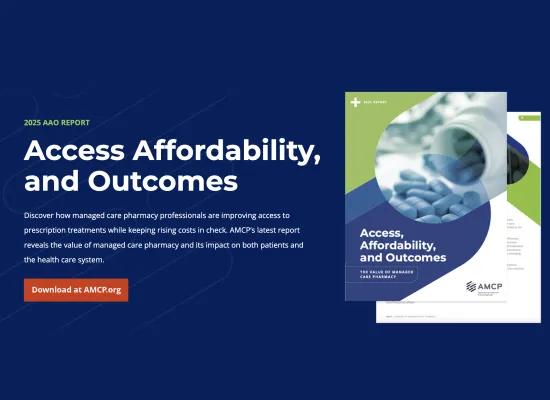
AMCP Files Amicus Brief with U.S. Supreme Court Case on Rutledge v. PCMA
Alexandria, Va., April 1, 2020 — AMCP has filed an amicus brief in the U.S. Supreme Court case Rutledge v. The Pharmaceutical Care Management Association (PCMA) that argues a ruling in favor of Rutledge would drive up health care costs and hinder patients’ health outcomes and ability to access affordable medications. The case is scheduled to be heard April 27.
Rutledge v. PCMA centers on a 2015 Arkansas law that aims to regulate how pharmacy benefit managers contract with pharmacies under health plans governed by the Employee Retirement Income Security Act (ERISA).
AMCP strongly agrees with the argument that the federal ERISA law — which promotes uniformity and predictability to maximize health care value — preempts the Arkansas law.
A ruling in favor of Rutledge could introduce varying, and perhaps contradictory, state laws that would restrict using evidence-based practices to promote optimal medication use and enhance population health outcomes. Such a ruling also would make the health care system more complex, creating additional financial burdens that would likely be passed along to consumers through higher premiums.
“The proliferation of 50 varying state regulations would further fracture our health care system, making it challenging if not impossible for managed care professionals to efficiently apply proven tools and practices, such as formulary management, that provide millions of patients the best possible benefits for their prescribed medications at the lowest possible costs,” said AMCP CEO Susan A. Cantrell, RPh, CAE.
A core function of managed care pharmacy is to improve health at the population level, including through utilization management programs. Those programs collect population-level evidence and use that information to design benefit plans that direct patients to the drugs that will treat their medical needs most effectively and at the lowest cost. These practices cannot improve population-level outcomes unless they can be designed and deployed to the entire population.
“Patients must always remain at the center of any proposed legislative or regulatory reforms,” Cantrell said. “We urge the U.S. Supreme Court to refrain from a decision that would endanger proven pharmacy benefit strategies that result in cost-effective and appropriate medication use as it decides on Rutledge v. PCMA. By doing so, it will ensure that patients receive the medicines they need at costs they can afford.”
For more information and to access the amicus brief, visit www.amcp.org/amicus.
Featured News & Resources
See Full CalendarAward Applications Open
AMCP eLearning Day: Nexus Encore
AMCP 2026 Registration Opens
Upcoming Events
AMCP offers a wide variety of educational opportunities, from events and webinars to online training.







